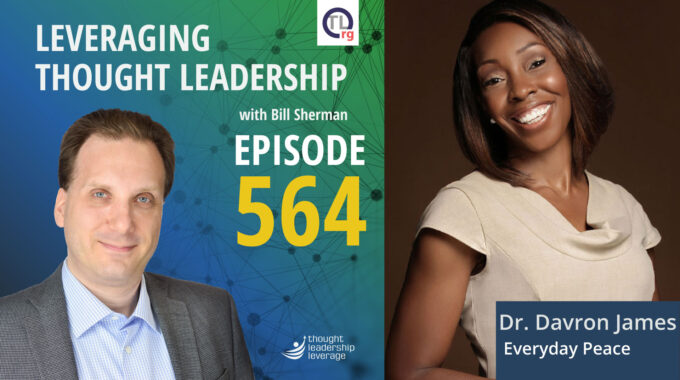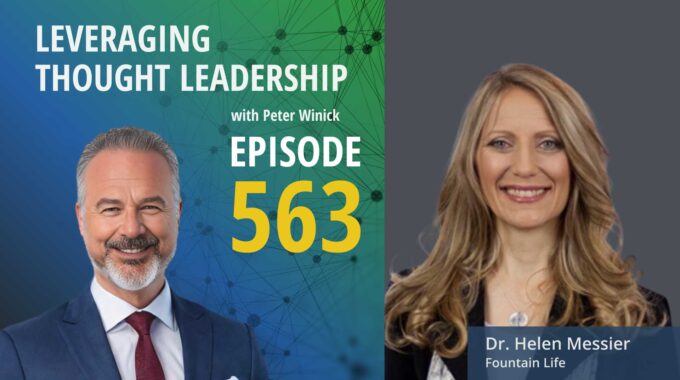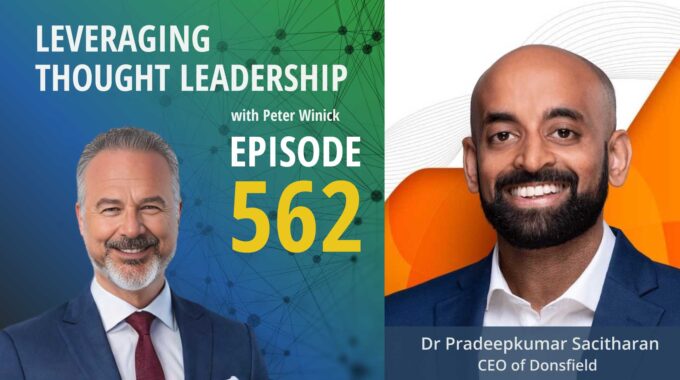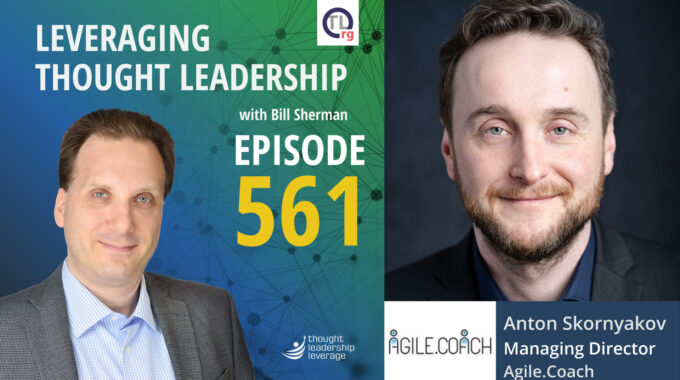Embracing Self-Awareness for Personal Growth and Peace A conversation with Dr. Davron James about her…
Creating Happiness with Thought Leadership | Monique Rhodes
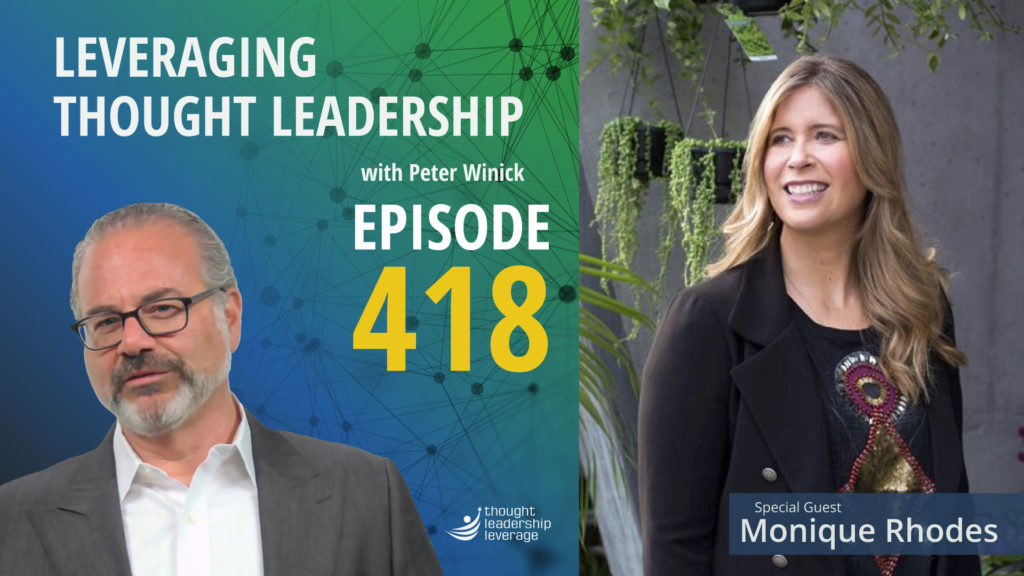
Creating and Marketing Online Thought Leadership Courses
An interview with Monique Rhodes about developing online courses that are guaranteed to increase happiness.
Is happiness something that comes naturally to some people? Can it be measured and taught?
In order to answer these questions I’ve invited the Happiness Strategist Monique Rhodes to join me. Monique is the CEO of One People Productions and her mission in life is to lead you toward a lifetime of happiness. To accomplish that, she combines teachings with powerful, habit-changing exercises.
Monique wasn’t always a happiness expert. Growing up in New Zealand, she was the victim of abuse as a child. That lead to depression in her teens and ultimately a suicide attempt. While in the hospital recovering, she chose to make it her mission to find happiness – and to understand why some people seem naturally happy, while others struggle.
This mission took her all over the world. In India, she began teaching mediation to a group of young girls who persistently asked for lessons. While Monique was not a natural teacher, she learned her passion about meditation – and her search for happiness – could be a driving force for others. Before long she was teaching 50 people a day.
These early teaching sessions evolved into a program. Monique trialed her thought leadership to a class of 20 people at University College in London, and watched as that class swelled to more than 100. By the end of the trial, more than 2500 people were involved! Monique began marketing the program to various universities and colleges, along with word of mouth, and due to positive feedback she was able to build a business around the program.
Monique has created The Happiness Baseline, 8 week program that not only guarantees results for those who finish, but has provable metrics, using Penn State University’s Authentic Happiness quiz.
This episode shows how thought leaders can tackle a personal problem and take their lessons to market, making the lives of thousands of others better! It’s a winner, and we’re thrilled to share it with you.
Three Key Takeaways:
- Many are not natural teachers, but if you have a passion for your thought leadership you can develop the skills needed to help others.
- Positive word of mouth about the effectiveness of your thought leadership can be better than a marketing budget.
- If you want to prove your thought leadership, ensure there are hard metrics to back it up.
If you need a strategy to bring your thought leadership to market, Thought Leadership Leverage can assist you! Contact us for more information. In addition, we can help you implement marketing, research, and sales. Let us help you so you can devote yourself to what you do best.
Transcript
Peter Winick And welcome, welcome, welcome. This is Peter Winick. I’m the founder and CEO of Thought Leadership Leverage, and you’re joining us on the podcast, which is Leveraging Thought Leadership today. My guest is Monique Rhodes, and I’ll give you her bio right now. So Monique hails from the beautiful little country at the bottom of the world called New Zealand, as well as being famous for having the best rugby team in the world and the beautiful landscapes of Lord of the Ring. New Zealand is also known for producing people who are a little on the wild side so that we know when you’re in her presence, you suddenly realize you’re in front of a person who actually walks the talk. She’s calm, she’s cool and she’s collected, and she has performed in front of audiences all across the world, in fact, even opening for Chuck Berry. And then I could keep going on and on, but I bet I get bored and would rather just talk to her because she’s sitting here. So that’s more fun than reading about her.
Peter Winick So, hey, Monique, how are you?
Monique Rhodes Peter It’s great to be here. Thanks for having me.
Peter Winick Great! So how did you tell me about your journey as a thought leader? How did you get here?
Monique Rhodes Yeah, so, you know, growing up in wonderful New Zealand as it’s so wonderful, there’s always a shadow side to everything. Peter And unfortunately New Zealand has a little bit of an issue with child abuse and I was one of the statistics of that. So I think that, you know, I was adopted and then things were pretty tough in my family. And I think probably by the time I hit my teenage years, I think it’s probably fair to say that I was depressed. My emotions were all over the place was a little bit like a roller coaster ride. And by the time I reached the age of 19, I left home at 17, you know, I was at a place where I just really wasn’t coping. And I think a lot of people understand that kind of despair. And I ended up in hospital having tried to take my own life. And when I was sitting in there in that hospital bed, I remember thinking, why is it that for some people, being happy is something that seems to come naturally in their life? And is it circumstances? Is it a predisposition that leads us to struggle or to be happy? And so I decided to go on a on a mission to see if I could help myself, because the systems weren’t in place really to help me. And so I spent.
Peter Winick Let me pause you there for a bit, because I think the parallel in lots of other types of thought leadership is, you know, where does it start? Because there is no logical, linear way to become a thought leader, right? Oftentimes the best thought leaders start by trying to solve a problem that nobody else could help them solve. Right. So that to me is a story that we’ve seen, whether it’s in leadership or management or personal development, whatever is there’s a thing and it’s it’s really, really important to you. And it gnaws at you and you might try to go to experts or get insight or whatever, but it’s not solved or it’s not solved for you. And there is the beginning of the journey. So that’s sort of the act one, right?
Monique Rhodes Yeah, absolutely. And I think that often when we look at these things that, you know, thought leaders end up teaching, often they’re things that I kind of wish we were taught at school, you know, some of the basics and fundamentals that would really make a difference for young people in their lives, particularly with the mental health crises that we’re seeing that are happening at the moment. What an amazing thing. If I didn’t have to go on a 25 year journey, figuring it out for myself and was able to able to have a kind of a playbook. So I traveled all over the world and I, you know, went to all sorts of countries, different philosophies. I lived in all sorts of places to see what was what could I discover the answers for myself? Could I find things that I could transform my own life with? And I can gratefully say that I did and I turned my life around. And instead of going through 20 something years of, you know, having to do that for yourselves, this is now what I teach other people is how to how to shift so that they can really be.
Peter Winick So let me pause you then. So now you’ve got this this insight, this domain expertise on how to be happy. And this is another sort of pattern that I see often is you have the expertise. You’ve spent years and years and years and countless hours taking it in, but it’s not necessarily natural for many or easy to then be able to teach it. Right. So this is sort of the curse of the expert. Now you’re at a point where intuitively you see things that others don’t see. You, you know, you sort of get it, get it. But to break it down to sort of the Lego pieces, the molecular level to its simplest level. So you can start to have that conversation with someone that’s 25 years pre you in their journey. What was that like for you? How did you did it come naturally? Was that it was that tough or how did you break it down into the little pieces?
Monique Rhodes Such a great question, Peter. I was living in India, a road, a motorbike through India for four years, traveling around. And I was in the south of. India. And when I was down there, I was actually doing a project for the Dalai Lama. So I was in one place in the south of India for some time. One day these two girls came to me and they said, We know that you sit on that rooftop every morning meditating and we would like you to teach us. And I was like, Absolutely not. And they came back three days in a row saying, Please, please, will you teach us? Everyone here teaches yoga. No one’s teaching meditation. And by the third day, in all honesty, I felt a little bit guilty. I thought, is it bad that I don’t want to do this? But I did not see myself as a teacher in any way, shape or form. So I kind of relented and said, okay, come up tomorrow morning at 8:00 in the morning. They came up the next morning at 8:00 and I taught the worst meditation class I think that was ever taught. I had no idea what I was doing. The next morning, they showed up again with two of their friends. And I was like, What are you doing here? And they said, Well, we told our friends that you told us yesterday and they wanted to come. And in that moment, something happened. Peter, that was really interesting. I was I felt so out of my depth and how to even teach this thing that had almost sort of been secret for me in a lot of ways. You know, a lot of the stuff that I’d studied didn’t really talk about it. And what I did was I sat with them in my frustration that they were all there, and I talked to them about why I meditated. And it was such an epiphany for me because all of the passion of why this was such an important practice for me came out. And before I knew it, every morning there were 50 people on my rooftop and I started teaching meditation and I loved it.
Peter Winick So this is sort of like a early version of viral marketing or whatever.
Monique Rhodes I guess. I guess. But it’s interesting that you say, you know, teaching to a younger, you know, to someone 25 years earlier because most of these were young English kids who were in India.
Peter Winick Between.
Monique Rhodes School and university. Yeah, just trying to just trying to figure their lives out. So I had to make it accessible for them. And that then led to me creating this program, The Ten Minute Mind, which is, you know, my focus then was that age group and this program’s now in about 70 universities and colleges around the world. And then it was expanding that even further and saying, okay, well, meditation is one piece of this, but it’s not the whole thing. And there’s a whole lot of other things that we need to look at if we’re really going to be happier. And so it kind of organically led into me teaching more and more what I’d been studied, been studying for all these years.
Peter Winick From that rooftop teaching. You know, maybe we don’t want to market you as the world’s worst teacher of meditation, right? Maybe that’s probably not a good piece. But, you know, a couple of things there. One is not everybody is naturally wired as a teacher. Some are and some aren’t. And that’s not a good thing or a bad thing. It’s just some people more introverted or more research focused or it’s not their thing or whatever. But I think, you know, you sort of leaned into it, figured it out. And I want to move to now and what the underlying business models are. So talk about sort of your because now the two have combined right. And this is a big piece, if not the piece in terms of what you do. Tell me about how it’s evolved in fast forward to, you know, from a rooftop in India to today.
Monique Rhodes Yeah. So I went to University College in London and was talking to them about the fact that I had this meditation program and at the time they had a live meditation class of about 20 people that they had, and they were looking for something to kind of access more people. And so I said to them, you know, they actually said to me, if you’ve got a program, we want to buy it. And I didn’t actually have anything really formally together. So I said to them, Why don’t we just spend a couple of months like trialing this program that I just trialed on about 30 people for a month? And so we did. And it was really amazing because they were hoping we put it to their staff and students and we were hoping to get an uptake of about they said if we got 50 students signed up and 50 staff, we would be thrilled. And by the end of the month, we had two and a half thousand people had signed up for this trial. So what we saw was that there was this huge need there and that was really, really powerful. And at the end of this trial period, I’ve got to be honest and say, the the feedback that we got brought me to tears from these students who had never really looked at their minds before, hadn’t done this kind of work, found the program incredibly accessible and easy and only 10 minutes a day, and were seeing results. And that then made me realize this is what I’ve got to do. It’s not what I had intended to do, but this is what I need to do. Because the signs were just so obvious and clear that, you know, after all these years of studying, that I had something that people really related to. And so I then started like marketing it to universities and colleges and then literally, literally through word of mouth. You know, we’ve built up quite a significant business at this point just from people hearing about the work. For me, it’s all about results. If I can if I can give people results, then they’re going to tell their friends. And if they’re telling their friends, then we’re getting more clients.
Peter Winick If you’re enjoying this episode of Leveraging Thought Leadership, please make sure to subscribe. If you’d like to help spread the word about our podcast, please leave us a review and share it with your friends. We’re available on Apple Podcasts. And on all major listening apps as well as at Thought Leadership Leverage dot com forward slash podcasts.
Peter Winick Let’s stay with that results piece because I think regardless of what the flavor of thought leadership or what the expertise is, there’s a continuum of sort of entertainment value to outcome. And I think what’s happened in this, I’m hoping we’re post-COVID, but as maybe we’re never post-COVID, but as far along into it as we are, I think the scales have shifted a little bit where the market used to value entertainment, not more than outcomes, but there was there was a good percentage of the value attributed to the entertainment side of it. Now, because of COVID, we’re doing things remotely. It’s not so much about the stage presence and all that. It’s really about investing in the capabilities of your people. Right. So when we look at a program, you know, why why does an organization spend X dollars per person or X dollars per year? Well, you know, they want to develop capabilities in their people that lead to measurable, tangible, real outcomes. So give me an example of some of what those outcomes are, maybe in the aggregate, or are people more creative? Do they stay you know, is it a retention piece? What’s the what’s the what are the outcomes? What are the promises?
Monique Rhodes So I think for me, Peter, one of the most important things is actually being available. I think that one of the big things we see with online courses, particularly when we have got an online platform, is that the person who is teaching this classes, you really can never have a connection with them. One of the things that I do is make myself accessible throughout the week for people to ask questions to. They might ask a question on my podcast about it, and I’ll platform this the ability to ask questions and I will answer them personally. And this is vital to me because I believe that if we able to do that, not only are you showing that you’re invested in the person rather than in numbers, but you also create quite a big.
Peter Winick So I have an answer because I like what you’ve done here. You’ve got to this step my scalable solution, which is the asynchronous answer to the question. So you don’t need to be sitting at your laptop 24 hours a day, seven days a week, waiting for a student from around the world to ask something that’s just not logical. Right? But they can ask something and they know within a reasonable period of time, half a day to day, a couple of days, whatever you’re going to answer it. And then part of what you’re doing is realizing, well, if Peter asked that question, maybe there’s ten other people that have that question that didn’t ask it or didn’t think of it in the same way or whatever. So you’re using it as it’s almost a flywheel to create some content, give the person the answer that they wanted, but in a way that provides more value to you and to others. Right. And that’s.
Monique Rhodes Absolutely. And we also do that in one of our other programs, which is called the Spotlight Sessions. And what I do is we have a recorded coaching where I’m coaching someone and then we make that video available. And, you know, again, you’ve got the same thing of if someone’s going through something, chances are there’s, you know, 100 other people going through the exact same thing. So that’s really powerful. But you were talking about results, Peter, and I think the results that I’m most proud of, particularly a particular business model that I’ve created, which is we have a course called the happiness baseline, which really is really goes through how to shift your happiness levels in an eight week course. And when I started it, one of my biggest things was it took me a year and a half to write it. And when I’d written it, my biggest concern was, how am I going to ensure that people actually do the work here? Because I, I’d done my research and I’d found out.
Peter Winick That.
Monique Rhodes Only 3% of people complete an online course. So what I did was I created an accountability bond. So basically people put down $500 as long as they complete the course within ten weeks. So we give them two extra weeks. They have every right to, you know, then ask for their accountability, bond back. And what we find is that we have about a 92% completion rate in that course, the happiness baseline. So the exciting thing about that is that not only do we have this high completion rate, but we also then have the ability to really see our results. And what we do is we put people through the Penn State University happiness like test at the beginning. Yeah. And we put them through at the end. And to this date we have a 100% success rate and shifting that score eight weeks later in a positive way.
Peter Winick So what you’re touching on now is I want to I want to pause there for a minute. So number one, when you start talking in language like baseline pre and post whatever, now you’re meeting the folks that might be skeptical. Where they live. So let’s say if it’s at an organization and I hate to beat up on the finance folks, but the finance spokesman show me my r y whatever. And we talk about your program. Now, some might think they might have a bias that, oh, this is woo woo, woo woo meditation. It’s out there, woo woo, whatever. But now you’re saying there’s a baseline, there’s a validated instrument I’m going to deploy on the front end. By the way, it’s not my instrument. I didn’t make it up. So I don’t have a I don’t have a horse in the race. Right. It’s Penn State. If you heard of that, it’s validated has been taken by tens or hundreds of thousands of folks. You’re going to get a score on the front end. I’m going to do my magic. There’s going to be a score in the back. And clearly the objective is improvement. I’ve got the data. I’ve got that most people can’t talk in data language to the folks that need to hear it. And the outcome of that is they get frustrated or there’s a lot of finger pointing, you know, those damn CFA, they don’t care. They don’t care. And I think the burden is rightfully so on the thought leaders say whether they get it or not isn’t the point. How can I meet them where they are? They tell the story in a language in a way that will resonate, you know. So I love what you’ve done there.
Monique Rhodes Yeah, it’s really powerful. And then on top of that, Peter, what then what that then does instead of someone get it like maybe hearing me on a podcast can excited going in and saying I’m going to do this happiness baseline course and only getting part of the way and then sort of leaving. Like, I didn’t really make that full connection with Monique’s work. What happens is, is they complete it and then all they want is what’s the next thing? What else have you got? We’re in. It’s also creating that loyalty because people get to the end and they see, well, what you’re what you’re teaching works. And so here I am, you know, what else can you teach me? And so that’s where we’re getting longer term, you know, clients who are really excited about the different courses that we have on offer and really want to be a little bit more part of.
Peter Winick And then you’re building related. Yeah, but, but also you’re building. The second course, the third course, the fourth course, not at the theoretical level, but the markets telling you right in no uncertain terms. This is what we need and not only what we need, but we’re willing to pay for because oftentimes the thought leader doesn’t understand the difference between, Oh yeah, that would be great. Why don’t you create this, create that and create the other thing? Well, the only the only real valid proof that you’re creating something someone needs is not that they say they need it, but they will spend the money and the time and the energy in the effort in the program. And the is the best place to get that information is from the market. Right, too. I love the systems you’ve created there. So this has been phenomenal. I appreciate your time and sharing your journey with us. So thank you.
Monique Rhodes Thank you so much for having me, Peter.
Peter Winick To learn more about Thought Leadership Leverage, please visit our website at ThoughtLeadershipLeverage.com to reach me directly. Feel free to email me at Peter at ThoughtLeadershipLeverage.com and please subscribe to Leveraging Thought Leadership on iTunes or your favorite podcast app to get your weekly episode automatically.



